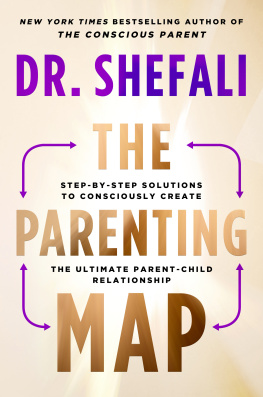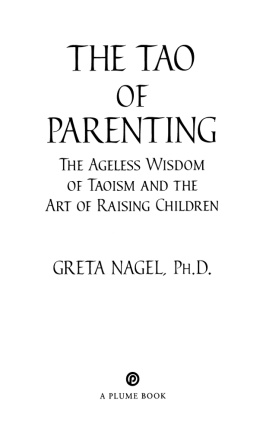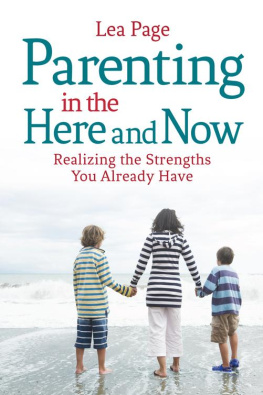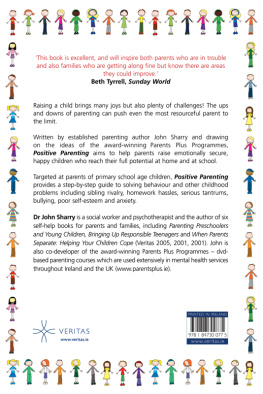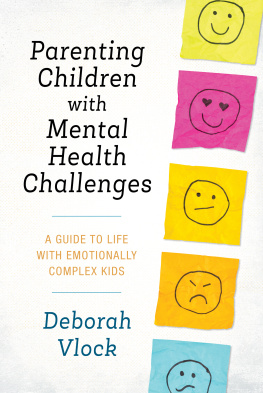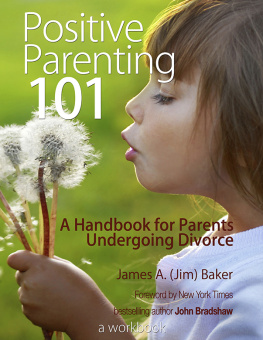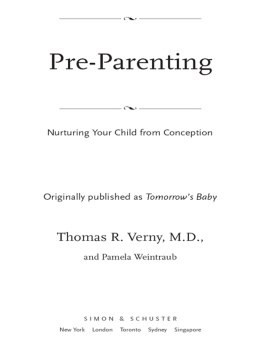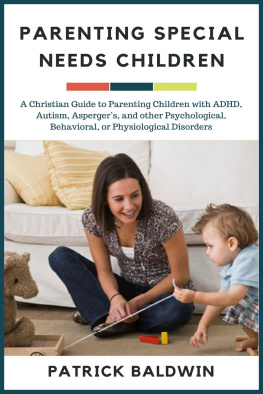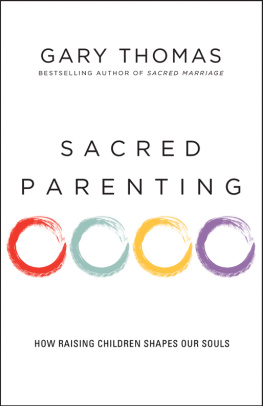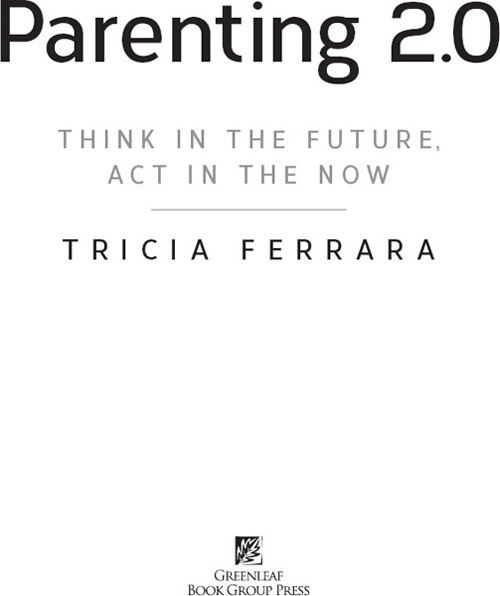
This book is intended as a reference volume only. It is sold with the understanding that the publisher and author are not engaged in rendering any professional services. The information given here is designed to help you make informed decisions. If you suspect that you have a problem that might require professional advice, you should seek competent help.
Published by Greenleaf Book Group Press
Austin, Texas
www.gbgpress.com
Copyright 2014 Tricia Ferrara
All rights reserved.
No part of this book may be reproduced, stored in a retrieval system, or transmitted by any means, electronic, mechanical, photocopying, recording, or otherwise, without written permission from the copyright holder.
Distributed by Greenleaf Book Group LLC
For ordering information or special discounts for bulk purchases, please contact Greenleaf Book Group LLC at PO Box 91869, Austin, TX 78709, 512.891.6100.
Design and composition by Greenleaf Book Group
Cover design by Greenleaf Book Group
Cover Image: iStockphoto.com/michaeldb
eBook ISBN: 978-1-62634-111-1
eBook Edition
Other Edition(s):
Print ISBN: 978-1-62634-110-4
Previously published as Look Both Ways: 9 Evolutionary Parenting Principles (September 2013) Archway Publishing, Bloomington, Indiana
To all defenseless children who have been victimized or targeted by violence: may your experiences and suffering not have been in vain
Contents
Chapter 1
Family Culture Counts
Chapter 2
Parenting: The Next Killer App
Chapter 3
Meet the Wikis
Chapter 4
Basics for Twenty-First-Century Strong
Chapter 5
Lets Face It: Facebook is No Substitute for Face to Face
Chapter 6
Brain Basics
Chapter 7
Development Playbook: Twenty-First-Century Edition
Chapter 8
Decoding Teens
Chapter 9
When Is a Bad Kid a Good Thing?
Chapter 10
Academics of Play
Chapter 11
Education Is Not a Spectator Sport
Chapter 12
Forget The Talk and Start The Walk
Chapter 13
Flash Points
Chapter 14
Self-Discovery Is the New Self-Esteem
Chapter 15
Beyond Bullying
Chapter 16
Guns a-Blazin
Chapter 17
Longevity: The New Peer Pressure
Chapter 18
Nine Evolutionary Principles to Parent with Possibility
Foreword
A t some point in time, anyone who has a child has pondered, Shouldnt this little bundle come with instructions?
Finally, Tricia Ferrara has cut through the clutter and raised the bar for parents, providing a clear call to action for parenting to evolve. With a unique perspective that is long overdue, she challenges us to let go of old parenting scripts and unproductive habits and bring forth those that are relevant and necessary to raise kids in todays fast-paced world.
Tricia is passionate about helping us become better parents as she guides us to develop stronger, more meaningful, and lasting connections with our children.
Her nine timeless principles are priceless. I see their value in shaping childrens lives every day. They help us cultivate the attitudes in our children that will help them reach their full potentialempathy, resiliency, accountability, and good judgment.
I have the utmost respect and admiration for Tricia, who runs a flourishing counseling practice and lectures regularly while raising two wonderful children. And Im thankful that she has boiled down her wealth of knowledge, research, and clinical experience into a book that will serve families well.
As Tricia inspires us to be better parents, I have no doubt her candid approach may shake things up a bit with a dose of reality. But isnt that exactly what we need and want for our families?
Ellen Langas
Author of the Girls Know How series
Youth Career Education Advocate
Haverford, PA
April 17, 2014
Preface
The parent-child relationship is the first chapter of everyones story; it is the foundation for the world we know and the world we will come to know.
M y work as a therapist over the past decade has positioned me as a hybrid of sorts. I feel part scientist at times, part artist at others. As a scientist, I am continually testing theories and hypotheses about what motivates people in life and, conversely, what holds them back. As an artist, I am compelled to hold a vision for others when they have lost the ability to hold their own. My job is to ensure that my patients acquire insight and tools to bring forth a new reality based on that vision.
Every day I am allowed privileged access to witness and participate in the sacred stories of many individuals and families. As I take in and digest their journeys, I am certain with each word they speak that we as a speciesnot just as a societyare being challenged to evolve and grow to meet the new, complex demands of the twenty-first century.
But it is not solely the life scripts of my clients that concern meits the headlines and images in the media that are increasingly punctuated by loss of security, constant threats, faltering institutions, and unimaginable greed and waste. As I listen, analyze, and observe, it seems the same questions haunt almost every story. Where are we going from here as a culture? As families? As individuals? And could we really screw this up?
Events that previously were rare cultural footnotes have become driving forces for our collective future: violence among and against children, abuse, sexually transmitted disease among teenagers, climate change, crushing financial pressuresjust to name a few.
And so new questions emerge: Where do we go from here? What and who will lead us out of this moment?
Parenting 2.0 has been rolling around in my head for several years. Im not exactly sure when the ideas began to take shape. Maybe it was around the obvious inflection points: The stunning explosion of social media, 9/11, Columbine, the Sandy Hook massacre, the shock of under-age student/teacher sex scandals, and the spectacular collapse of investment banking are all possible influences. Were not in Kansas anymore, I found myself thinking. Something was, and still is, happening all around me. I was sensing a story struggling to be told.
What I sought was the language to describe the moment we were and are still facingto provide a framework for what has been unfolding so I could address how parents could design, create, and direct a successful future for their children and families.
Slowly but surely, key words began to emergeadaptability, entrepreneurialism, moral imagination, sustainability, digital, resilience, saliency, viral, exploit, risk, strategy, self-organizing, neural connections, consciousness, immunityall parts of a new script, one free of the old fear-based paradigms for child raising, yet full of human connection, creativity, and imagination, which comprise the essential fuel to assimilate this way of thinking.
Parenting 2.0 weaves these key words into a fresh understanding of what we will need to know and are obligated to teach our children. It identifies where we stand on the map of modern society and helps parents navigate new, relevant information. Most importantly, it illustrates the most potent message conceivable for our modern day family: Childhood is the opening passage in all our stories. The parent-child relationship is the foundation of everything in this world: the world we now know, the world we will come to know, and the good, the bad, and the ugly that informs who we are, but need not limit who we can be.
Next page

